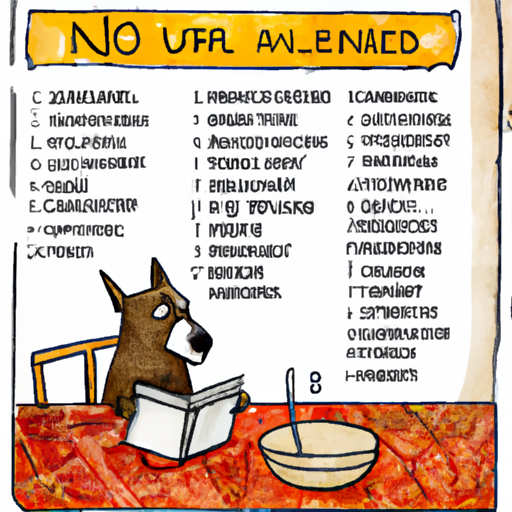As a caregiver, the safety and well-being of those under your care are paramount, including the furry members of your household. Dogs, just like humans, have a keen sense of taste, and it’s only natural to want to spice up their meals occasionally. However, not all seasonings that we humans relish are safe for our canine friends. This guide will help you understand the seasonings that can be harmful to your dog and why.
H2: The No-Go List: Seasonings to Steer Clear Of
Many seasonings, while harmless to humans, can pose serious health risks to dogs. They include:
- Onion and Garlic Powder: These common kitchen staples can cause damage to a dog’s red blood cells, leading to anemia.
- Nutmeg: It contains a compound called myristicin, which can cause seizures and central nervous system damage in dogs.
- Chili Powder: The capsaicin in chili powder can lead to digestive issues in dogs.
- Salt: Excessive salt intake can lead to salt poisoning, which can be fatal.
In addition, there are a few more that include:
- Cocoa Powder
- Mustard seeds
- Black Pepper
- Certain artificial sweeteners, such as Xylitol
H2: Why Are These Seasonings Harmful?
Each of these seasonings affects dogs differently. For instance, onion and garlic powder can cause oxidative damage to red blood cells, leading to a condition called Heinz body anemia. Nutmeg, on the other hand, affects the nervous system and can cause hallucinations and seizures. Excessive salt can lead to hypernatremia, a condition characterized by high sodium levels in the blood.
| Seasoning | Effects |
|---|---|
| Onion and Garlic Powder | Oxidative damage to red blood cells |
| Nutmeg | Hallucinations and seizures |
| Salt | Hypernatremia |
H2: What are the Symptoms of Seasoning Toxicity in Dogs?
Knowing the signs of seasoning toxicity can help you act quickly and get your dog the help they need. These symptoms include:
- Vomiting
- Diarrhea
- Excessive thirst
- Lack of appetite
- Lethargy
- Seizures
- Disorientation
H2: What to Do If Your Dog Ingests Harmful Seasonings?
If you suspect your dog has ingested any of these harmful seasonings, it’s essential to seek veterinary help immediately. Depending on the amount of seasoning ingested and the size of your dog, treatment may involve inducing vomiting, administering activated charcoal, or providing supportive care such as IV fluids and oxygen therapy.
H2: Prevention is Better than Cure
The best way to keep your dog safe from seasoning toxicity is to keep these seasonings out of their reach and never add them to their food. Always check the ingredient list of any store-bought dog food or treats, as some may contain harmful seasonings.
FAQ
Q: Can I give my dog any spices or seasonings?
A: Some spices and seasonings are safe for dogs in small amounts, but it’s best to check with your vet first.
Q: What about other food items like fruits and vegetables?
A: Many fruits and vegetables are safe for dogs, but some, like grapes and onions, can be toxic.
Q: How much of a harmful seasoning does my dog have to eat to get sick?
A: Even small amounts can be harmful, especially for small dogs. It’s best to avoid these seasonings altogether.
Q: What should I do if I’m not sure if my dog has eaten something harmful?
A: If in doubt, always contact your vet. They can advise you on the best course of action based on the type and amount of seasoning ingested and your dog’s size and overall health.



